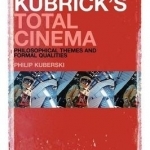Kubrick's Total Cinema: Philosophical Themes and Formal Qualities
BookThis item doesn’t have any media yet
2014 | Film & TV
Whatever people think about Kubrick's work, most would agree that there is something distinctive, even unique, about the films he made: a coolness, an intellectual clarity, a critical edginess, and finally an intractable ambiguity. In an attempt to isolate the Kubrick difference, this book treats Kubrick's films to a conceptual and formal analysis rather than a biographical and chronological survey. As Kubrick's cinema moves between the possibilities of human transcendence dramatized in 2001: A Space Odyssey and the dismal limitations of human nature exhibited in A Clockwork Orange, the filmmaker's style "de-realizes" cinematic realism while, paradoxically, achieving an unprecedented frankness of vision and documentary and technical richness. The result is a kind of vertigo: the audience is made aware of both the de-realized and the realized nature of cinema. As opposed to the usual studies providing a summary and commentary of individual films, this will be the first to provide an analysis of the "elements" of Kubrick's total cinema.
Related Items:
| Published by | Bloomsbury Publishing PLC |
| Edition | Unknown |
| ISBN | 9781628929478 |
| Language | N/A |
Images And Data Courtesy Of: Bloomsbury Publishing PLC.
This content (including text, images, videos and other media) is published and used in accordance
with Fair Use.
